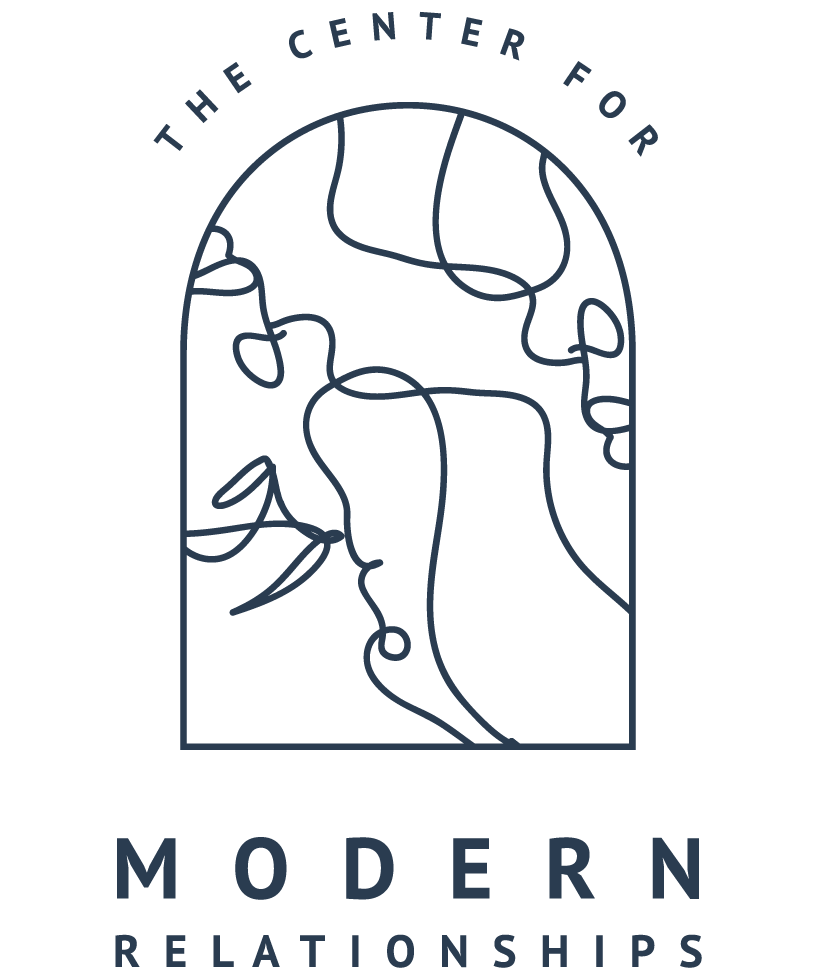Defining the Modern Relationship
It is with pure delight that I announce that our practice has transitioned from the Center for Mindful Living to the Center for Modern Relationships. The modern relationship has significantly changed, and for that reason, it felt like the perfect time to shift our brand, our voice and our practice vision to one that celebrates the complexities of what it means to be a relational being today. Read on to learn more about our take on the modern relationship.
In the beginning, humans partnered to create community, safety, and wealth. The family unit cooperated and functioned together for income and survival, and it was common to be sexual with people both inside and outside of marital partnerships. Monogamy came into fashion so we’d know whose children belonged to whom and where to pass along our assets once we died. Then came a shift where we began to marry for love – an idea that very much still exists here in the West. Our commitment to our partners was culturally agreed upon as unconditional and unending, and the sex we had was with one person for life.
Fast forward to 2021, where freedom of choice and our values have entered the picture. Monogamy no longer means sex and romance with one person for life, but functions as a choice to be sexual and/or romantic with one person at a time. We learn about doing love and sex through movies, television, and media. We educate ourselves on the concepts of belonging and vulnerability so that we can have more fulfilling lives. We date and find partners through apps and grapple with whether we’ve found our person, or if there is still someone better out there. Culturally, we no longer acknowledge one right way to do relationships.
Modern relationships are, in one facet, difficult. They are influenced and complicated by the expectations of the culture we live in, our never-ending to-do lists, and the dread of FOMO. We hear and make jokes about commitment being a loss of self and loss of freedom. We’re culturally driven toward independence and individualism in daily life, leaving our partner(s) to offer all of the physical and emotional relational resources that an entire community used to provide. Combining our reliance upon our partner(s) for companion/friendship, financial partnership, sexual excitement, emotional support, and safety with the omnipresent idea to constantly move toward a better, more fulfilling sense of happiness, it’s no wonder that things are difficult to navigate.
Yet in another facet, the way we’ve centered all of our needs in our partnerships is shifting. Marriage and monogamy aren’t the standards anymore – instead, they are choices we make based on our value systems. We are pausing, questioning, gathering information to make the informed decisions that are right for us and the way we’d like to live our lives. We’re moving from individualistic thinking to relational thinking. We’re valuing our mental health, spiritual health, relational health and sexual health, in addition to our physical health. We’re thinking more clearly about our expectations from our partner(s) and differentiating between where we want to engage and invest with them, and where we want to engage and invest in ourselves and our communities. This is the essence of the Modern Relationship and, because we as humans are hardwired as relational beings, we’re all in this journey together.
So where are you at in your Modern Relationship journey? What did you learn from the relationships you encountered growing up from your parents and elder family members, friendships, and the media you consumed? What challenges do you see and experience in Modern Love? I’d love to hear your stories.
~ Michelle Herzog, LMFT, CST & Helen Wyatt, ALMFT
